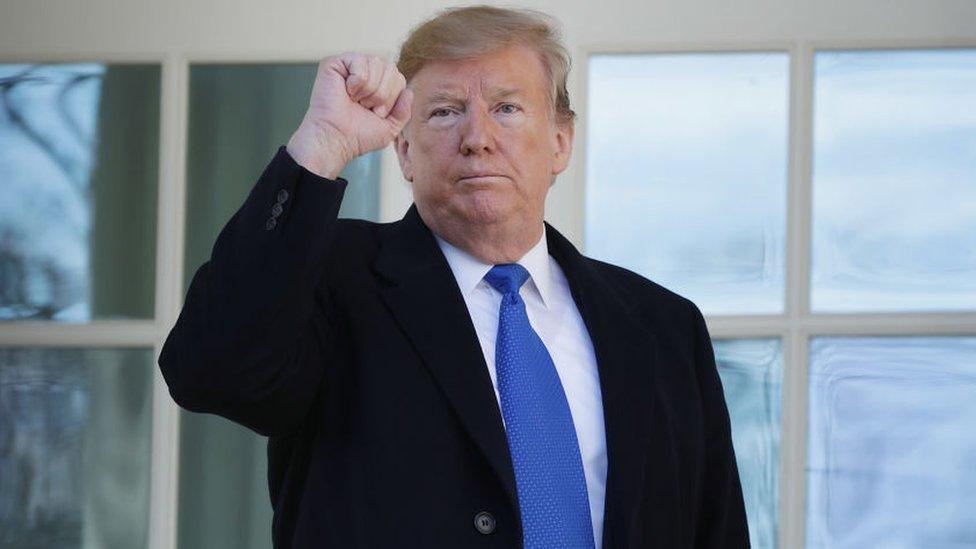Trump strips California of power to set auto emission standards
- Published
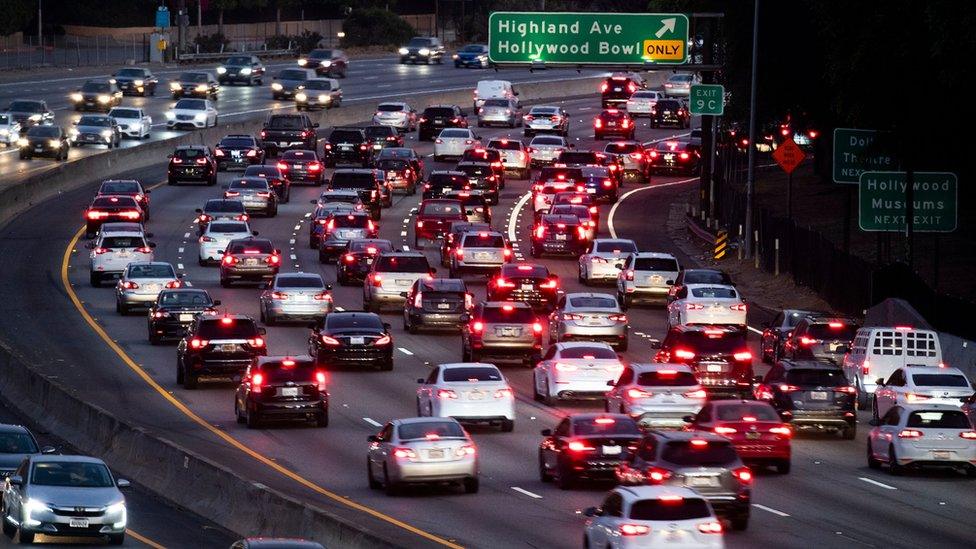
The White House has stripped California of its right to set its own vehicle emissions standards and banned other states from setting similar rules.
The waiver allowed the state - America's most populous - to set stricter standards than the federal government.
President Trump says the move will cut car prices and the impact on emissions will be minimal.
But it is likely to spark a legal battle over states' rights.
California has already taken steps to block the administration's efforts.
"We will fight this latest attempt and defend our clean car standards," said Governor Gavin Newsom in a statement on Tuesday.
This is the latest clash between the Republican president and the state, a West Coast fortress of liberal Democrats.
Allow X content?
This article contains content provided by X. We ask for your permission before anything is loaded, as they may be using cookies and other technologies. You may want to read X’s cookie policy, external and privacy policy, external before accepting. To view this content choose ‘accept and continue’.

What do the rules mean?
California's ability to set its own rules dates back to the 1970s when Los Angeles was blanketed in choking smog.
The state was allowed to set tougher emission standards than the federal government as long as it could provide a compelling reason for why such a waiver was needed. In 1977, other states were allowed to adopt California's stricter standards.
The Golden State's rules have largely become the de-facto benchmark nationwide because car manufacturers do not design different sets of vehicles to meet standards in other states. The state accounts for about 12% of all vehicle sales.
Emissions control methods first used in California, such as catalytic converters and regulations on oxides of nitrogen, have become commonplace throughout the US.
Thirteen other states and the District of Columbia have already adopted California's stricter exhaust pipe greenhouse gas standards - together representing about a third of the US car market.
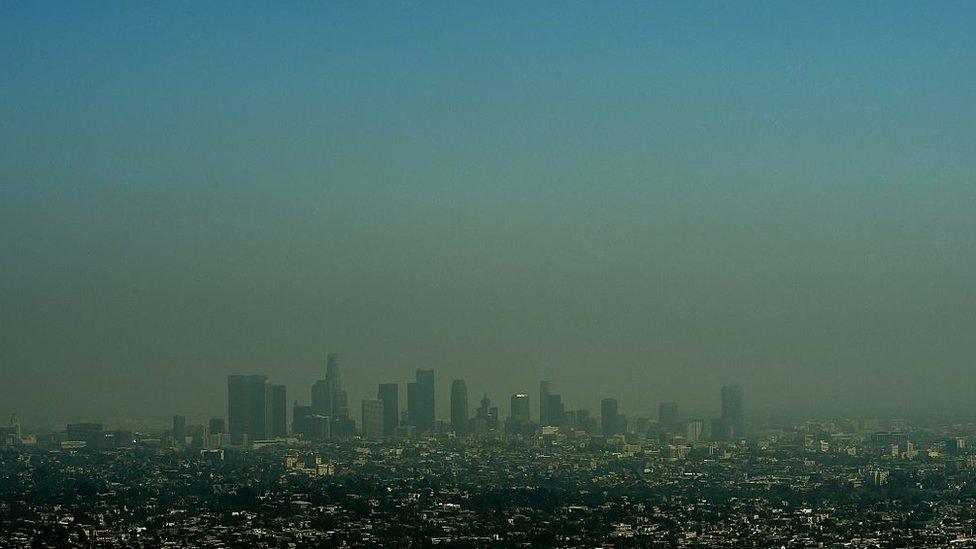
The Los Angeles skyline, shrouded in smog
In July, under the waiver system, California conducted secret negotiations with Ford, Honda, Volkswagen and BMW of North America.
The car-makers pledged to produce fleets meeting a standard of 50 miles per US gallon (4.7 litres per 100km), against the current 37 mpg level, by 2026.
Increased fuel efficiency means vehicles burn less petrol and emit fewer greenhouse gases into the atmosphere.
Emissions from transportation, including cars and trucks, are the largest single source of greenhouse gases in the US, according to the US government.
But some analysts expect manufacturers to wait for the outcome of litigation on the new standards before they make any changes to their cars.
Trump and the environment
Mr Trump's announcement is his latest move to roll back Obama-era environmental protections.
In June 2017, Mr Trump pulled the US out of the Paris Agreement, a climate pact forged under his predecessor involving nearly 200 countries.
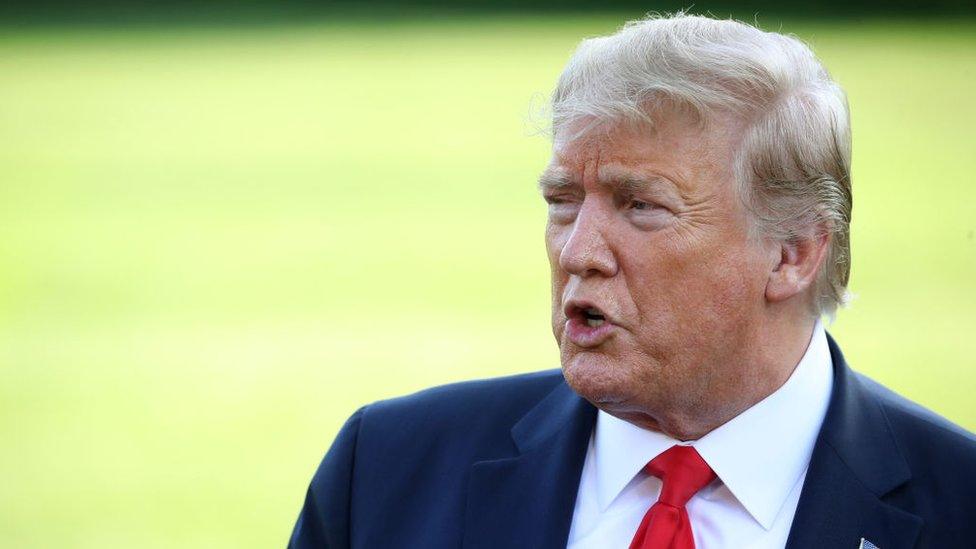
In December of last year, under guidance from the White House, the Department of the Interior unveiled plans to allow oil drilling on millions of acres that have been off-limits to protect the greater sage grouse, a near-threatened species that spans 10 states in the US.
That same month, the Environmental Protection Agency (EPA) said it would end rules limiting carbon emissions on new coal plants, soon after the president dismissed a report by his own government warning of future devastating economic consequences to the US from climate change.
Climate change: How 1.5C could change the world
Also under Mr Trump, federal bodies have supported freezing emissions requirements for new cars and trucks at 2020 levels until 2026.
The administration was reportedly planning to issue separate rules to reverse Obama-era fuel economy requirements in the next few weeks.
Globally, the US was last year ranked 10 out of 180 countries in terms of air quality and 27th in overall environmental performance, according to a Yale University study, external.

Trump v California, again

The state of California is a giant, Democrat-blue thorn in Donald Trump's side.
Its new governor, Gavin Newsom, has been an outspoken critic of the president. Its attorney general, Xavier Becerra, has launched a fusillade of legal challenges to White House policies. In 2018, California voters overwhelmingly opted for Democratic congressional candidates, helping to wrest control of the US House of Representatives away from the Republican Party.
California, in effect, has positioned itself as the progressive counterpoint to Trump's conservative politics - a case study in how to do things differently on a wide range of policies, including healthcare, the environment, immigration and education.
Now the president - who seems to take every bit of criticism personally - is pushing back. Car regulations are one of the ways California, by itself one of the world's largest economies, can effectively set national standards regardless of federal action. With this attempt to clip the state's wings, Mr Trump is sending a message about who calls the shots. He's also upping his criticism of California's growing homeless problem - suggesting the progressive model has some glaring flaws.
California Democrats aren't going to go down without a fight, however - one that will surely end up in the courts. This episode is simply the latest chapter in a dispute that is far from over.

What's the response?
Governor Newsom called the president's announcement "a failed attempt to assert power" and "a continuation of a political vendetta against CA and our progress".
Allow X content?
This article contains content provided by X. We ask for your permission before anything is loaded, as they may be using cookies and other technologies. You may want to read X’s cookie policy, external and privacy policy, external before accepting. To view this content choose ‘accept and continue’.

Echoing the governor, California Attorney General Xavier Becerra vowed to head back to court. Mr Becerra has already sued the White House more than 50 times on a variety of issues including the proposed border wall, the reversal of the Affordable Care Act, and other environmental standards.
At a press conference in Sacramento on Wednesday, Mr Becerra took a veiled jab at Republicans.
"Our message to those who claim to support states' rights is, 'Don't trample on ours,'" Mr Becerra said. "We cannot afford to backslide in our battle against climate change."
Among car manufacturers, Mr Trump's decision could prompt a split reaction.
Though automakers had previously lobbied the White House to relax standing environmental regulations, some manufacturers are reportedly worried that the legal challenges expected to result from the administration's intervention will add to existing market turmoil.
Moreover, some carmakers contend that without significant increases in fuel efficiency, US vehicles will be less competitive globally, ultimately resulting in job loss.
Public support for stricter greenhouse gas emissions is strong. And according to a Washington Post-Kaiser Family Foundation poll released last week, 67% of Americans say they support state governments setting stricter fuel efficiency targets than the federal government.
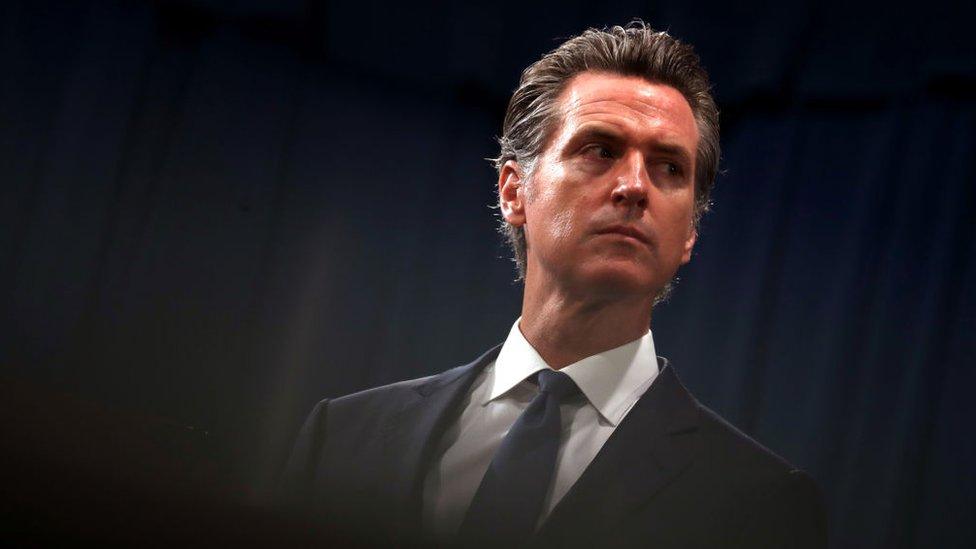
Governor of California Gavin Newsom has said he will fight any challenge from the White House
- Published11 September 2019
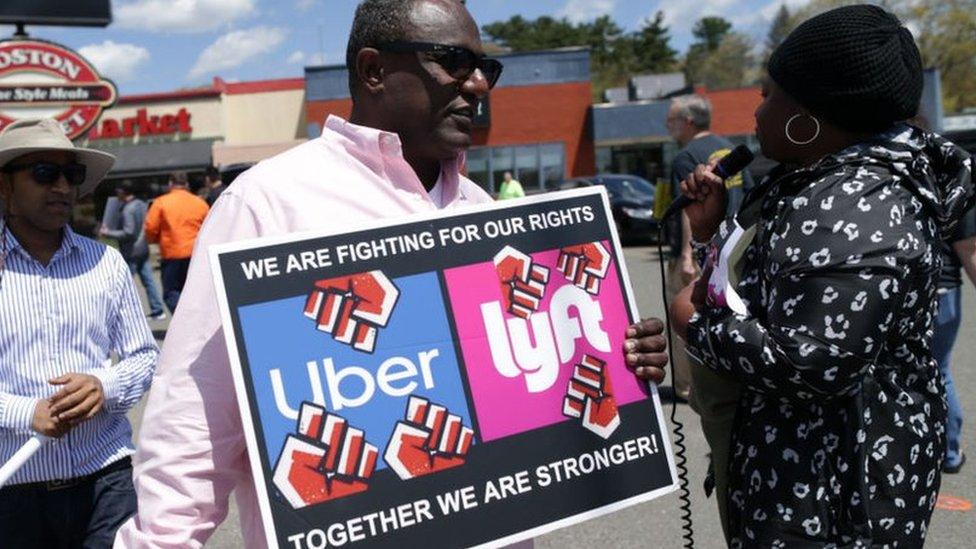
- Published26 November 2018
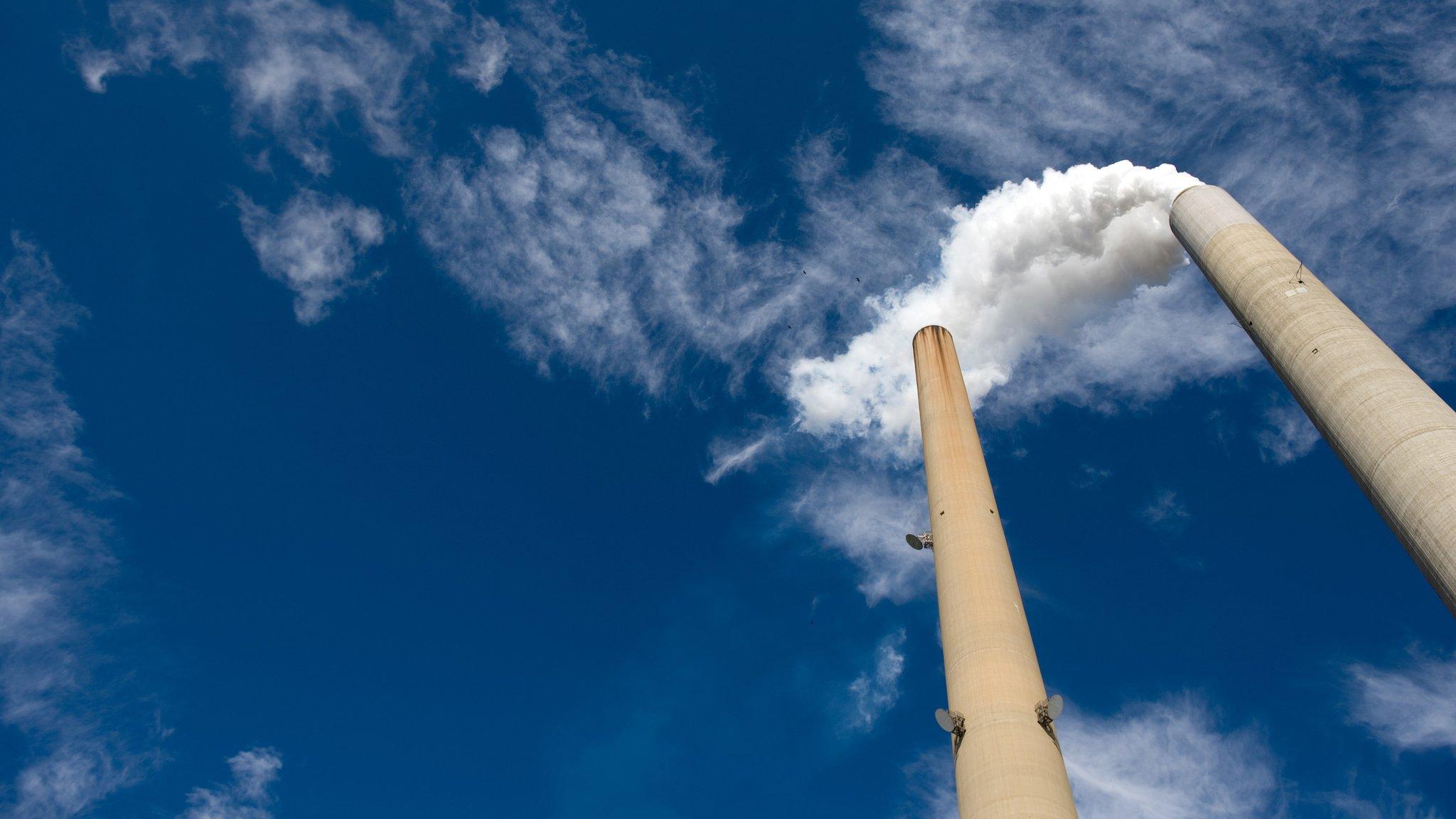
- Published20 February 2019
